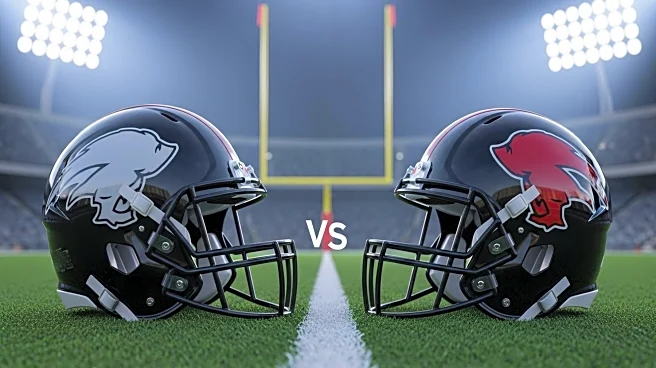What's Happening?
A dispute erupted between Jacksonville Jaguars coach Liam Coen and San Francisco 49ers defensive coordinator Robert Saleh over accusations of sign-stealing during their recent NFL game. Saleh accused Coen's staff of being 'elite' at legally stealing defensive signals, a claim that Coen dismissed as he was seen confronting Saleh postgame. The Jaguars won the game 26-21, and Coen's players reportedly used the accusations as motivation. Saleh's comments were intended as a compliment, but the use of the term 'sign-stealing' led to tensions. Jaguars quarterback Trevor Lawrence noted that such remarks can serve as motivation, but ultimately, performance on the field is what matters.
Why It's Important?
The incident highlights the competitive nature of NFL coaching and the strategic elements involved in game preparation. Accusations of sign-stealing, even when legal, can lead to tensions between teams and coaches, affecting team dynamics and public perception. The Jaguars' ability to use the situation as motivation demonstrates the psychological aspects of sports competition. This event may influence how teams approach signal security and communication strategies in future games, potentially leading to changes in coaching tactics and team preparations.
What's Next?
The fallout from the incident may lead to increased scrutiny on how teams handle signal security and communication during games. Coaches may need to reassess their strategies to prevent any perceived advantages from sign-stealing. The NFL could consider implementing clearer guidelines or monitoring practices to ensure fair play. Additionally, the Jaguars and 49ers may address the situation internally to prevent further public disputes and maintain focus on their respective seasons.
Beyond the Headlines
The ethical implications of sign-stealing, even when legal, raise questions about sportsmanship and fair play in professional sports. The incident underscores the fine line between strategic advantage and ethical conduct, prompting discussions on the integrity of competitive practices. Long-term, this could lead to a cultural shift in how teams view and implement competitive strategies, balancing the pursuit of victory with maintaining sportsmanship.









